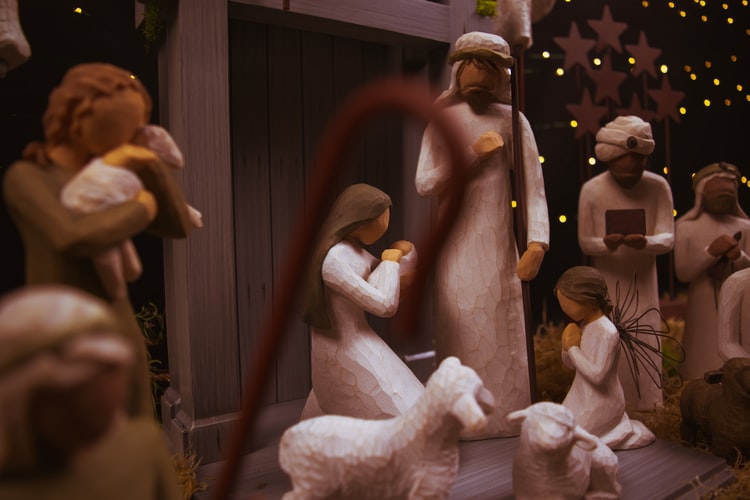Events and Society
Anthropology of the gift: the meaning of gifts according to Marcel Mauss
19 December 2020
Fewer and fewer gifts under the Christmas tree. This is the picture taken by the Confcommercio Studies Office, which conducted a survey on consumption trends during the 2020 holiday season. Overall spending on gifts has dropped by an average of 18 percent nationwide compared to last year. In our country, people often give up exchanging thoughts among adults so that the little ones do not miss out on some long-awaited toys: the research shows that one in four citizens decided not to buy presents for family and friends.
Complicated by the Coronavirus emergency? In part, yes, but that’s not all. Going back in time, we can read that over the past decade, the tendency to donate at Christmas has steadily declined each year. Data in hand, Confcommercio shows a 30 percent decrease from 2009 to the present.
From economic crisis to pandemic, every Christmas is good for a gift-giving squeeze. Undoubtedly, the purchasing power of Italian families has shrunk considerably, but gift-giving does not always depend on economic availability. Consumer choices conceal a psychological dimension. In a historical phase of worry and instability, such as the one we are currently experiencing, bypassing the commitment of Christmas gifts is not only a consequence of an empty wallet. It is also an indication of discouragement, lack of sociability, and lack of enthusiasm in the face of the holiday that our grandparents considered the most important of the year.
The social value of gift-giving
We have forgotten, perhaps, what it means, really, to exchange gifts at Christmas. The ancient root of the word “gift” indicates the creation of a social relationship. According to the principles of classical economics, a good has two values: of use, because it satisfies a need; of exchange, because it procures other goods. The gift adds a third, the bonding value: a donated good creates new bonds, as well as strengthening existing ones. Anthropologists, studying traditional societies, have found that it is through gifts, even small and of modest economic value, that humans establish social relationships, embedded in objects.
A good that one receives from a loved one is a repository of memory. According to Marcel Mauss, grandson of the father of sociology, Émile Durkheim, and author of the masterful “Essay on the Gift” (1924), there is a soul in donated objects, which binds them to the giver. This force causes each object, sooner or later, to tend to return to its owner either in its original form or in the form of other equivalent gifts. Mauss, in particular, refers to hau, a concept that for the Maoris of New Zealand expresses a vital essence inherent in human beings.
Comparing ethnographic research by Franz Boas and Bronisław Malinowski, Mauss explains that when a product is given to others, the spirit of the object seeks to find its place of origin. According to the French anthropologist, gifts retain a force transmitted by the person who makes them. This is because they are a kind of extension of individuals, who identify with the things they possess and exchange.

The triangle of giving-receiving-reciprocating
Unlike a mercantile exchange that is based on the immediate abolition of debt, the obligation to return the gift is moral, not contractual. The gift, in fact, implies a strong dose of freedom. There are no rigid or sanctionable rules and time frames, only trust. So why do we feel, often, the duty to reciprocate? Counter-giving, being able to occur with uncodified deadlines, transforms time into bonding. Giving establishes a positive imbalance, which creates and keeps the relationship alive, ensures union between giver and receiver: by giving we commit our time and the time of others because we hope that a friendship, a love, a working relationship will continue. Giving is always a request for fidelity, in which the commitment to give back is at the other’s choice; the gift binds and liberates at the same time.
Exaggerated solicitude to discharge an obligation is a form of ingratitude.
François de La Rochefoucauld
Because giving means shedding light on the bond
When we give something to someone, we also do a personalized act. We will give, probably, something that we like, but keeping in mind the tastes and characteristics of the recipient. Therefore, in that gift there will be something of us and something of who will receive it, because objects are receptacles of identity.
At Christmas, then, giving should have nothing to do with consumerism and “gift anxiety”. We also celebrate birth by receiving gifts from each other. For everyone, believers or not, giving gifts means giving light. The Romans with Saturnalia celebrated the predominance of the Sun over darkness. For Christianity, however, the light is that of God. Christmas, in some way, is the “birthday of all”, so we remember to exchange gifts, a completely human way to make visible, in all its truth, the state of our relationships.
The images depict sculptures by US artist Susan Lordi